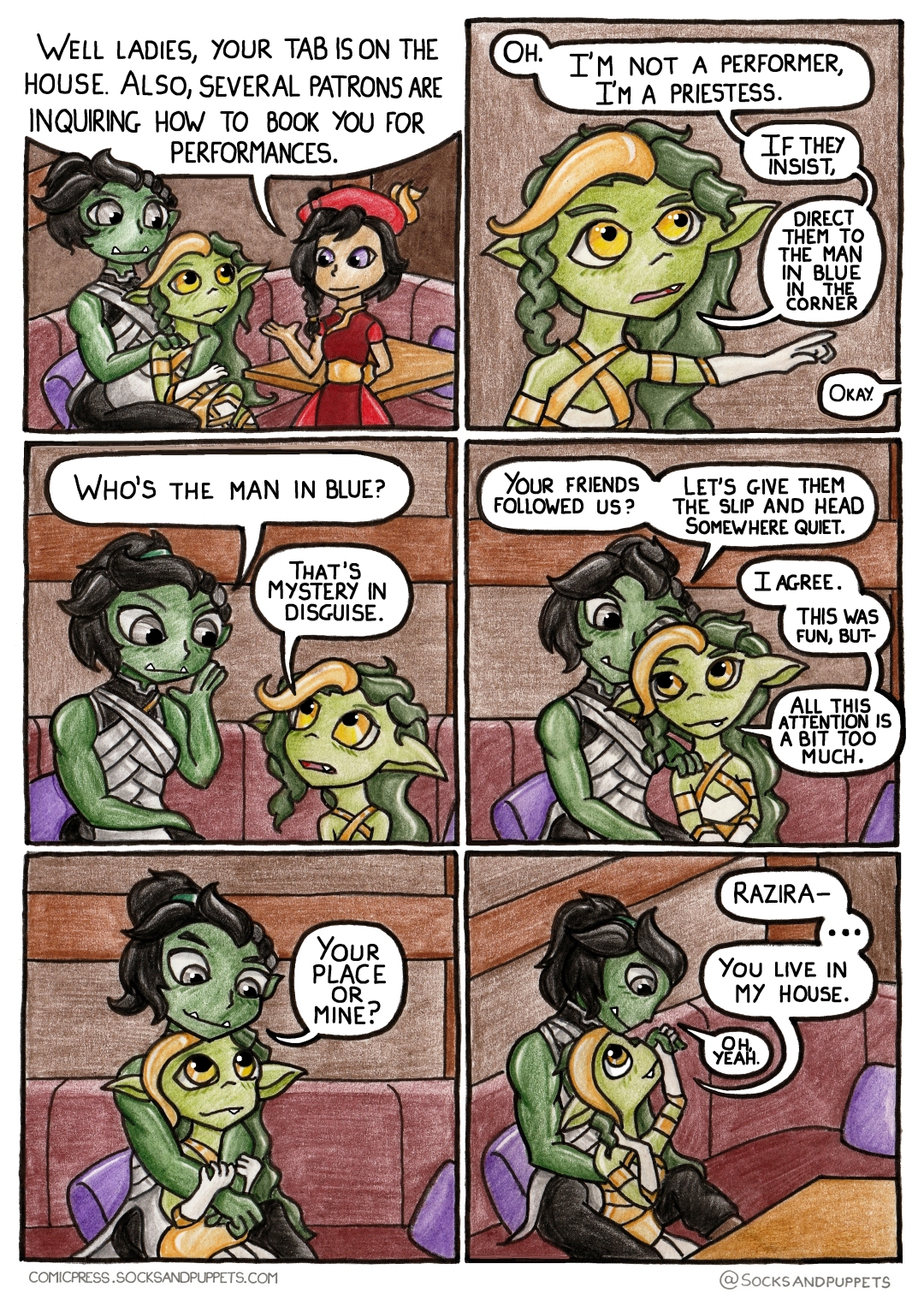this post was submitted on 25 Sep 2023
374 points (93.1% liked)
RPGMemes
10424 readers
216 users here now
Humor, jokes, memes about TTRPGs
founded 2 years ago
MODERATORS
you are viewing a single comment's thread
view the rest of the comments
view the rest of the comments

I haven't heard "gagging" used as a specific term of art, in tabletop, but I have heard it used in improv circles.
It's normally pretty bad to shut players down at the table. As a DM, you should normally be happy that your players are roleplaying, it means they're having fun and you get a little break where you can just sit and listen, or think about what you're going to do next.
There are a number of cases where you do want to stop players talking too much. (This is not exhaustive, just some examples.)
If one player monopolizes the roleplay/spotlight, as a DM you might want to close them down to let the other players have a go... It's generally best to interrupt with something that brings a quiet or shy player to the forefront.
Sometimes you genuinely want to interrupt a conversation for narrative impact - maybe in a light-hearted game, a character is about to reveal their deep dark secret, and you want to interrupt the discussion with a fight to make a comedic cliffhanger. Maybe your scenario has things happening in real-time and you're tracking how much time the PCs "waste" talking their plans over.
Sometimes, players can get bogged down planning what they're going to do next in excruciating detail - like they think there's a big threat in the next room, so they spend an hour discussing plans for which spells to put up, what items they're going to use, who's going to focus on what tactics etc etc. This can often be an activity that takes whole sessions, and isn't that interesting - so you might want to put a stop to that. The best way to do this is if you have an NPC voice in the party who can get fed up and suggest they wrap it up. It can be a very good thing to move the characters on if you know for sure the planning is meaningless (e.g. If you know the next room is empty and all the enemies are gone)
If you're running a game to a tight time schedule, it can be important to keep the pace of the game up. The most common situation for this is a one-shot, where you want to get to the conclusion within a set time limit. If you have a limited number of hours for a scenario, you need to get through your content. In my experience for one-shots It's generally good to plan one or two encounters that you don't "need" and aim to run them, but if your players get into the RP, just quietly drop the random battle on the road. This gives you the flexibility to let them RP if they're into it, but the content to fill the session if they're not.
As always use your judgement and try to read the table, pay attention to who's engaged and having fun, or who's looking at their phone, and base your decisions on what you think will be most fun for the players.